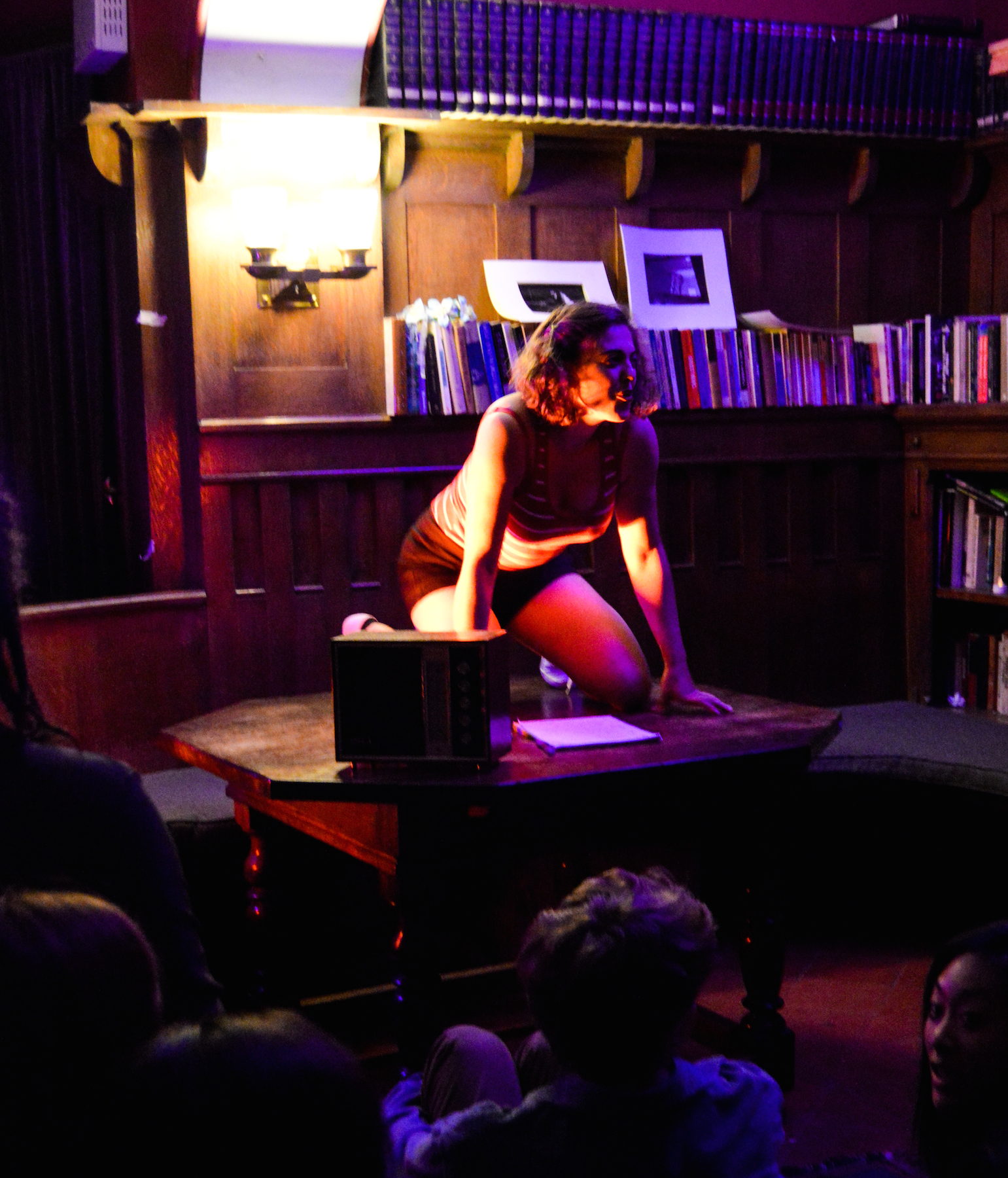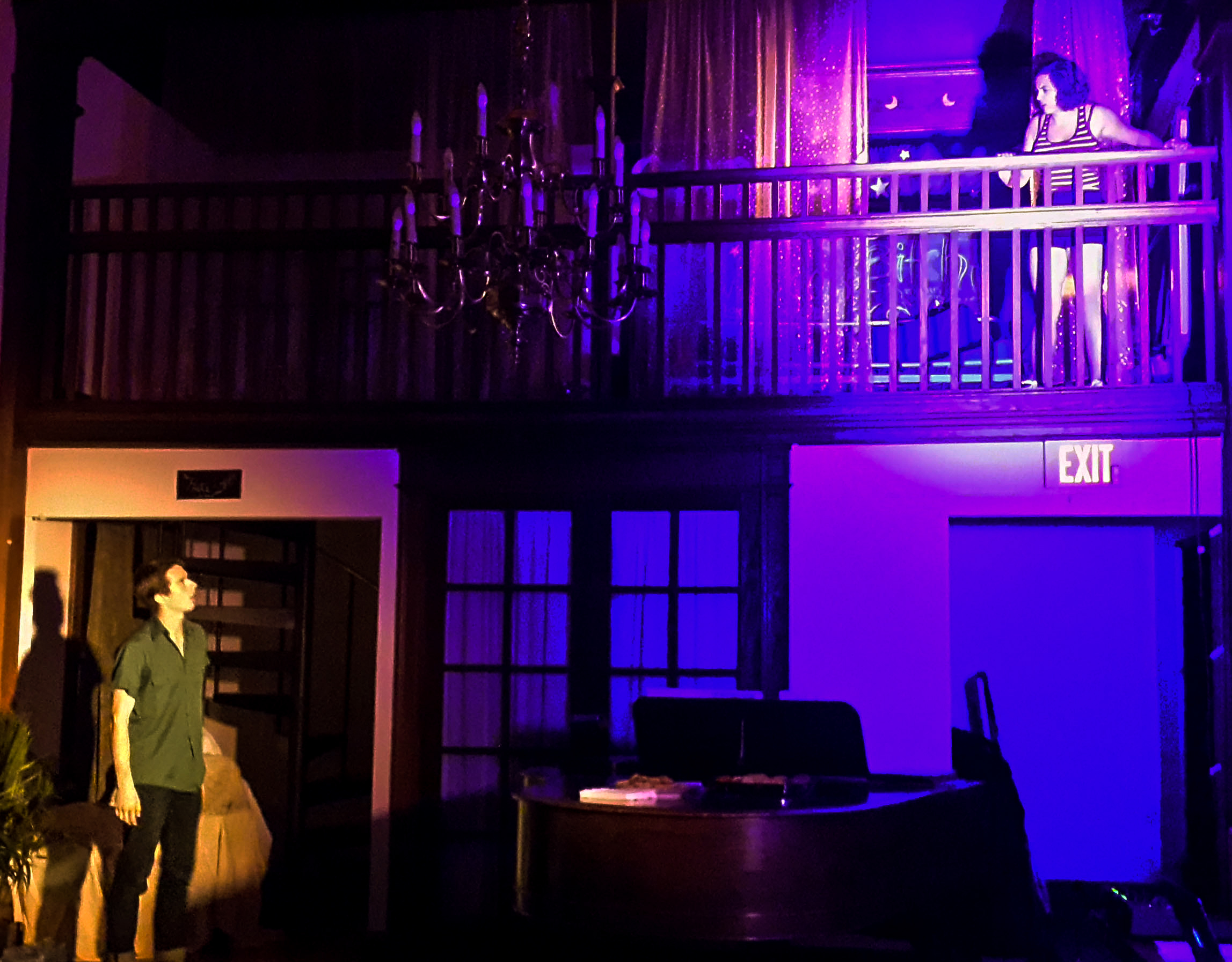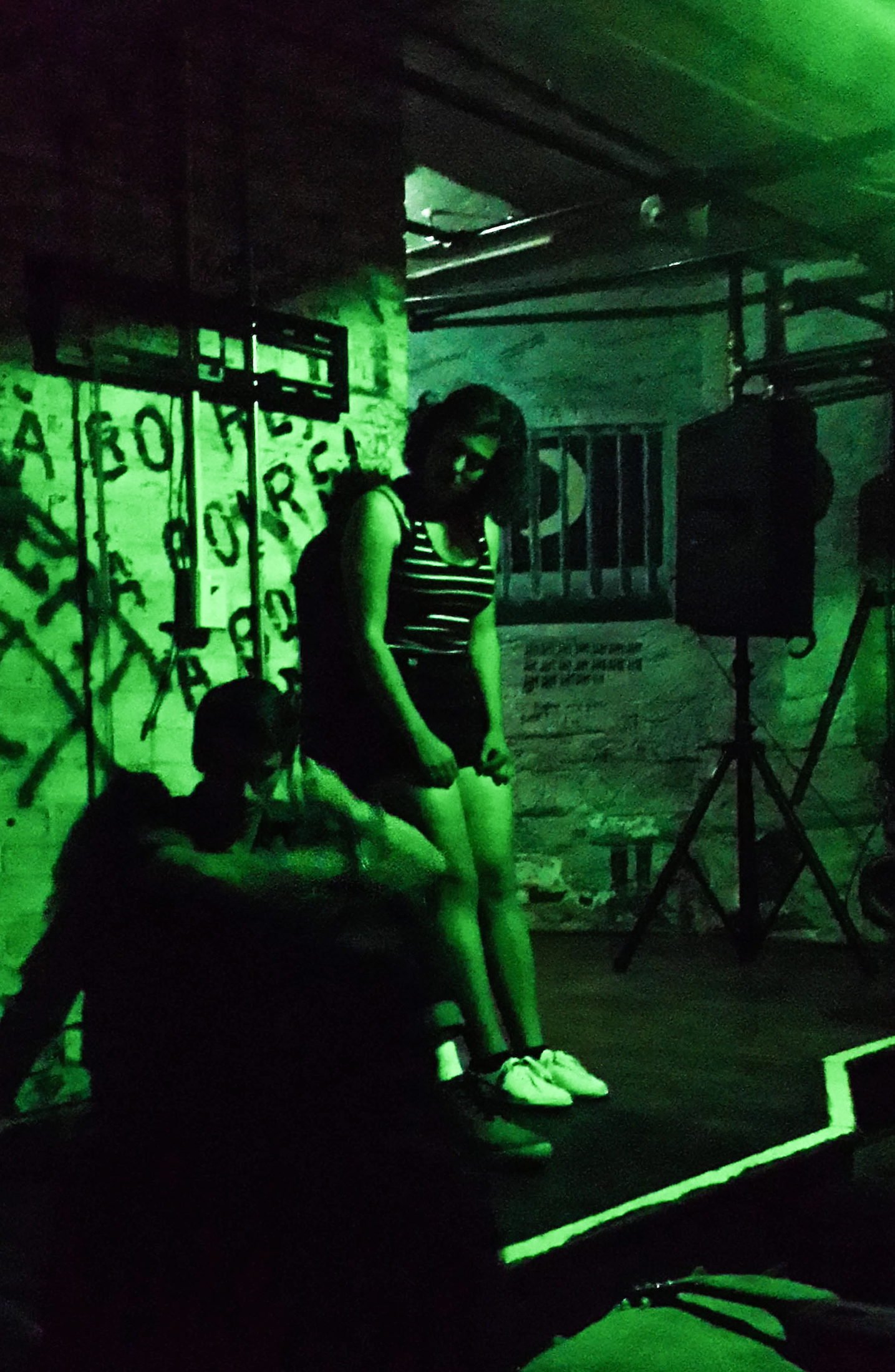Romance is a fickle thing. In one moment, everything is exciting and full of possibility, and in the next, everything has the potential to elicit confusion, loneliness, and anger. A recent Second Stage production, “A Little Epic,” explores the complexity of romance with an nuanced mix of humor and tragedy. An incredibly brief show, “A Little Epic” captures the essence of romance with more grace and humanity than most plays are capable of.
The play follows a couple pulled straight out of Greek mythology: Theseus, king of Athens and slayer of the Minotaur, and his love, Ariadne, the daughter of King Minos. In the actual myth, Ariadne gives Theseus a ball of thread so that Theseus can make his way out of the labyrinth that houses the Minotaur. Afterwards, rather than stay with Ariadne, Athena tells Theseus to sail home and leave her. While the play doesn’t focus much on these details ( assuming the audience knows some of the backstory), it traces their romance and their harsh breakup, mostly through flashbacks.
Theseus attempts to give a speech (he is, very clearly, hungover) to Athens, but he’s quickly interrupted by his ex-lover. Ariadne (Tatum Millet ’19) is clearly infuriated with Theseus (Owen Daly-Smith ’19), both due to his speech and his prior mistreatment of her. To understand why everything went so awry for the couple, Ariadne guides the audience through their past, delving into their origins and the end of their passionate romance.
“A Little Epic” boasts a fantastic script. Written by Miranda-Hoyt Disick ’19, Theseus and Ariadne’s love story is treated with both quirkiness and humor, delicate sorrow and bitterness. The couple’s early romance follows that of a classic romantic comedy, with a mix of elegant romance and humor derived from the awkwardness of falling in love with someone you barely know. The scenes focused on the couple’s bitter breakup are strikingly different, written with a deft blend of anger and confusion. Ariadne interrogates and hurls insults at Theseus with scathing intensity; Theseus responds with confusion and a desperate desire to explain why he chose, rather cruelly, to leave her in the middle of the night. Their inability to communicate with each other is written with both blazing intensity and heartbreaking grace. Furthermore, Disick smartly crafts the two characters as universal archetypes rather than highly specified characters, allowing her to tell a heartbreaking and recognizable story that lasts only about 40 minutes.
The show’s lovely script wouldn’t matter much if the cast couldn’t bring these memories to life; thankfully, the show’s actors are excellent. Millet, portraying the modern-day Ariadne, brings angst-ridden, vitriolic intensity to her bitter, resentful character. Daly-Smith, on the other hand, delivers an excellent performance as the awkward and curmudgeonly Theseus, the polar opposite of the infuriated Ariadne. Playing their past selves, Anna Apostolidis ’19 and Eddie Chapman ’20 do an excellent job of portraying the naiveté and romantic curiosity that Ariadne and Theseus once experienced. Aposolidis is bubbling with energy and charm as Ariadne, making for an excellent contrast to her embittered, older self. Chapman portrays young Theseus with the same clumsiness and bumbling charm as his older self. Some people never change; some tragically do.
The show’s staging is absolutely fantastic. Directed by Ali Jamali ’17, the show moves throughout various spots in Alpha Delt’s house, with different rooms and locations housing different scenes. A scene set in a prison takes place in Alpha Delt’s basement; a romantic evening is set on the front porch. While this could have made the show a clunky mess, Jamali expertly stages each scene and the transitions between them. Each room is its own little theater, with room for the audience and room for the actors to move about and interact with each other. This setup is not merely used for the sake of style, but it ingrains in the audience the sense that the play they’re watching isn’t merely a story, but the memories of its lead characters. By moving throughout the house, the audience is moving through time; by watching the play unfold in multiple locations with minimal sets, the audience is seeing what few details the characters can actually remember about where they once were. Jamali’s staging isn’t merely done for the sake of it; it forces the viewer to go through the same disorienting motions as the characters go through.
It’s a testament to the strength of “A Little Epic” that so much humor and heartbreak can be explored in such a short show. The show features a script that’s both bare bones and deeply rewarding. Its cast finds both pathos and humor in their archetypal roles. Its staging evokes the surrealism of memories. And, over the course of 40 minutes, it will break your heart.
- Wisly Juganda, Staff Photographer
- Wisly Juganda, Staff Photographer
- Wisly Juganda, Staff Photographer



Comments are closed